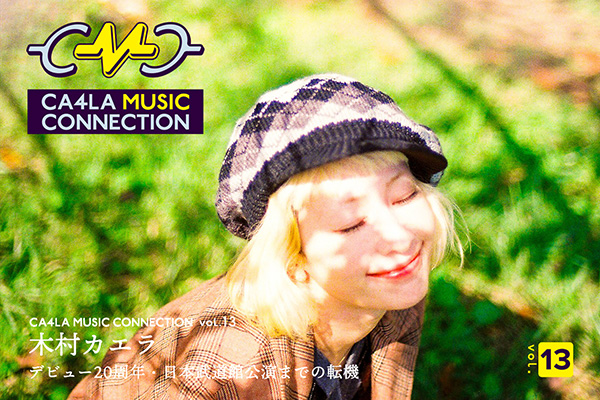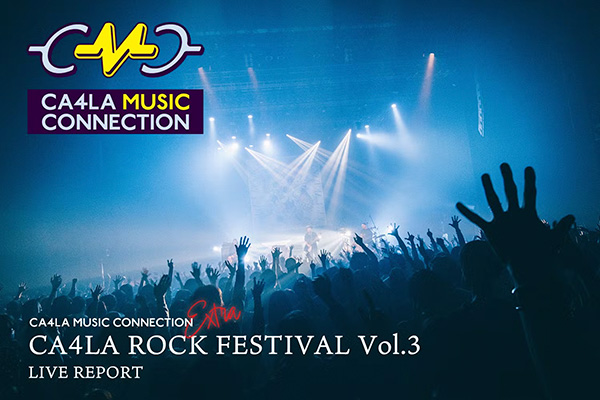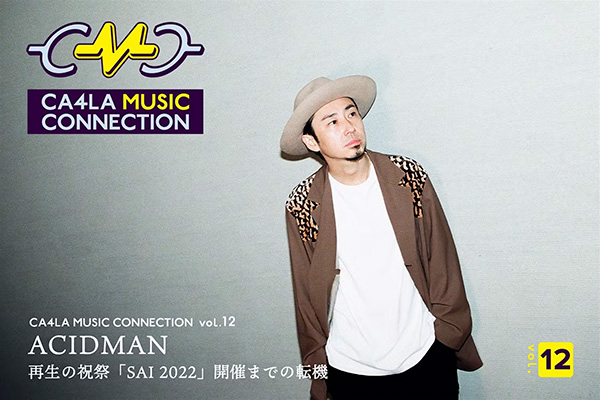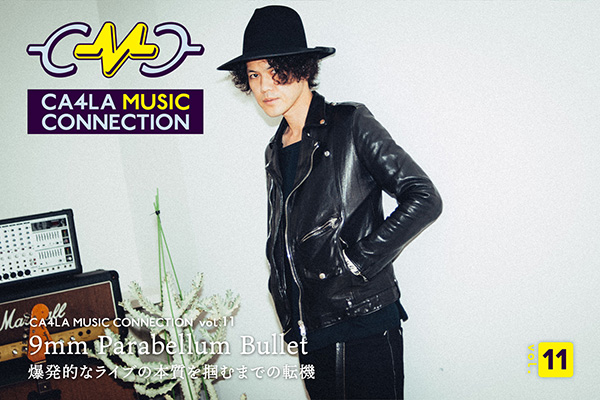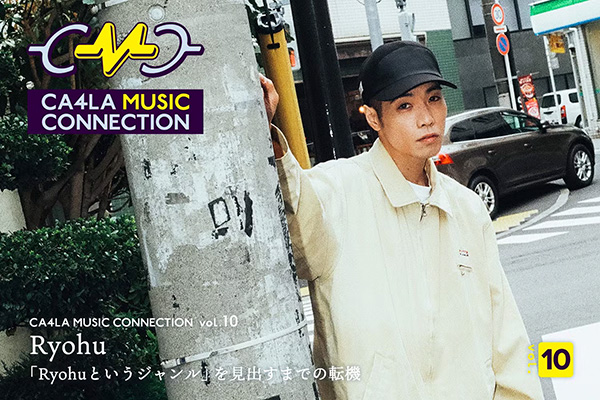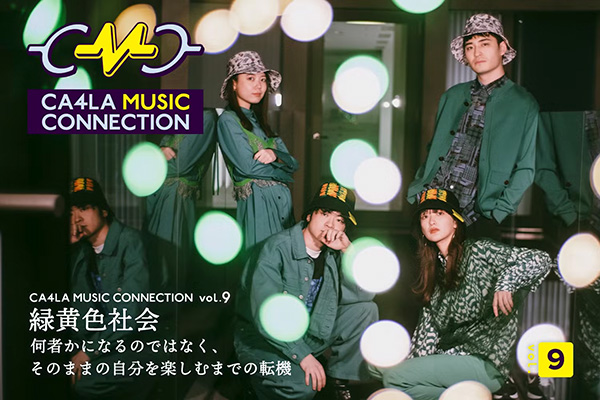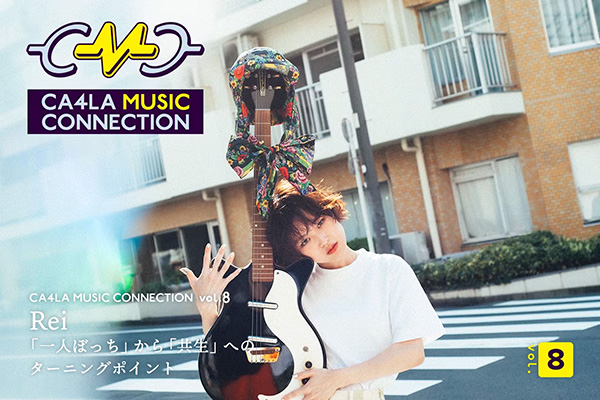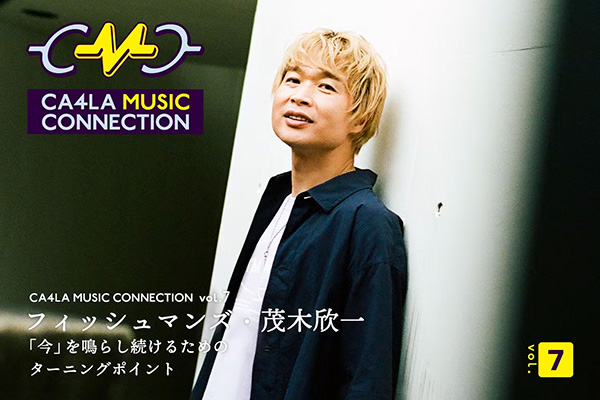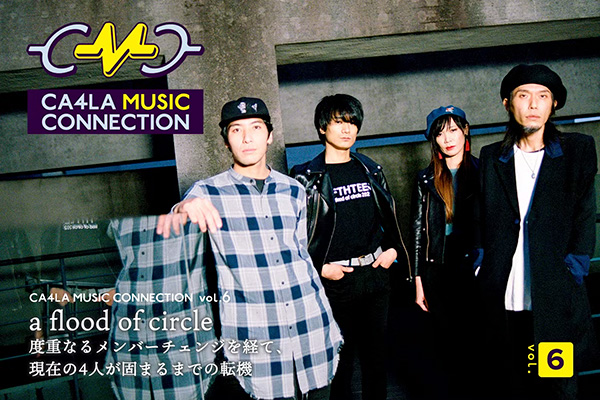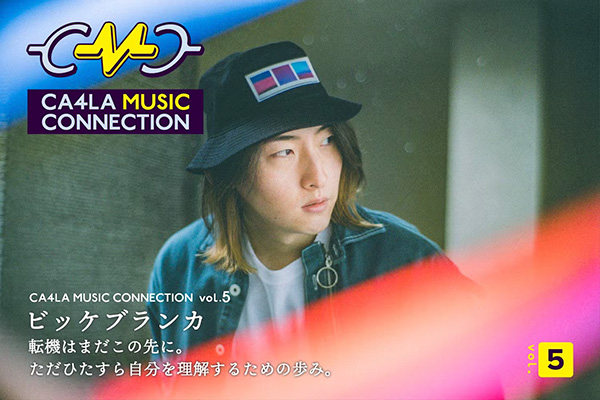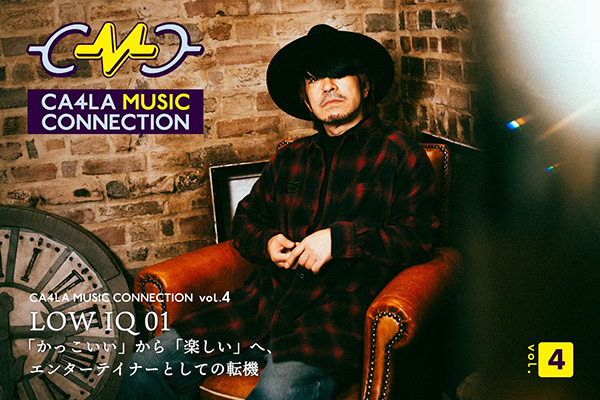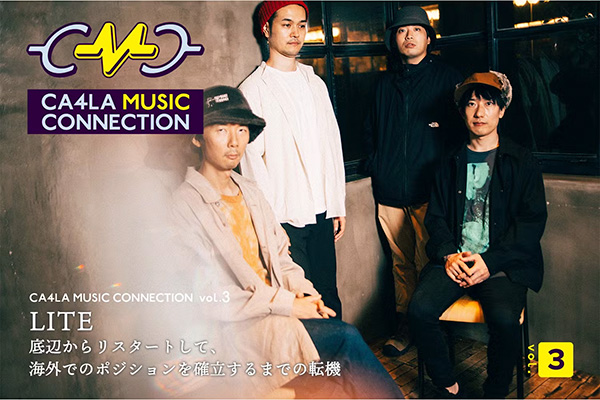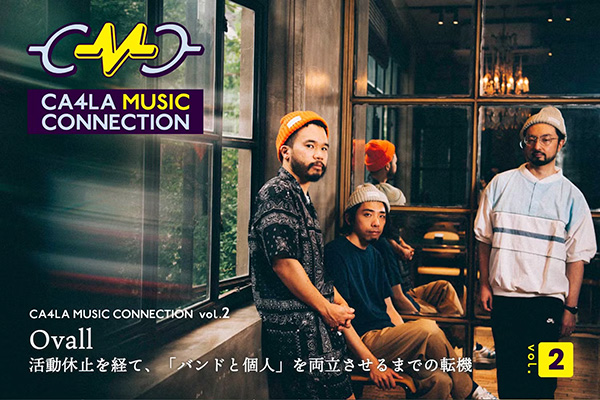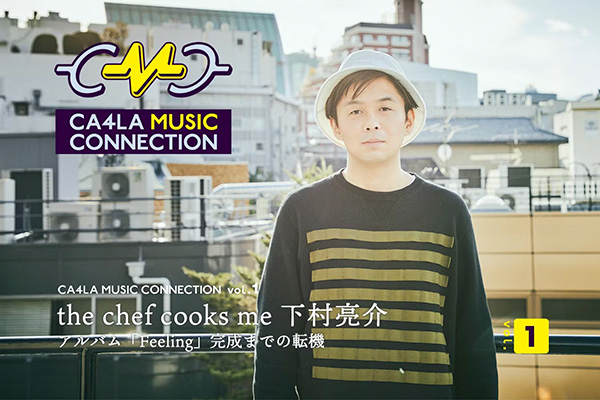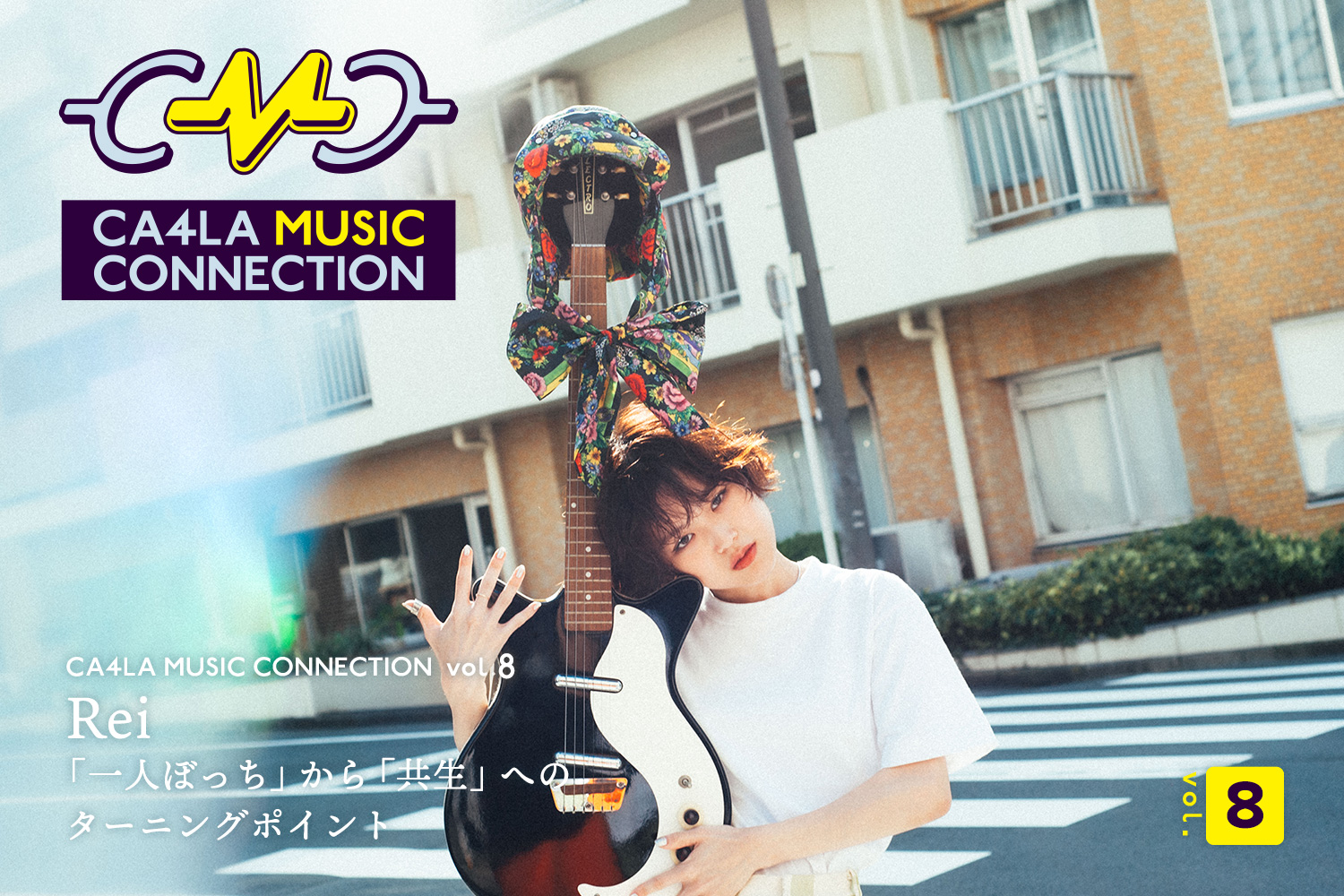 CA4LA MUSIC CONNECTION vol.8
CA4LA MUSIC CONNECTION vol.8Rei
A turning point from "loneliness" to "coexistence"
For artists, there is always a turning point in the process of creating a work or in the source of their activities at any given time. "CA4LA MUSIC CONNECTION" is a serial project in which we interview artists about the turning points in their activities. The artist who will appear in the 8th installment is singer-songwriter/guitarist Rei. Rei has been living his life with music since he was a child, starting with classical guitar at the age of 4, discovering blues at the age of 5, and forming his first rock band in elementary school after returning from New York. His outstanding guitar playing, pop songwriting, and colorful arrangement sense became a hot topic, and he made his debut in 2015 with "BLU", co-produced by Ryosuke Nagaoka of Petrolz, and released his first album "REI" on a major label in 2018. In February of this year, he made his long-awaited world debut with the international edition of "REI", which re-recorded the songs in English. Rei is now starting a new project called "QUILT," COLLABORATION with an artist he is close to. Until now, Rei has been single-mindedly pursuing his own expression through music, but why has he now chosen to COLLABORATION that is based on "symbiosis"? We asked him about the change in his mindset.
Text by Atsutake Kaneko
Photo by Kana Tarumi
Hair Make by Haruka Miyamoto
Interview:Rei
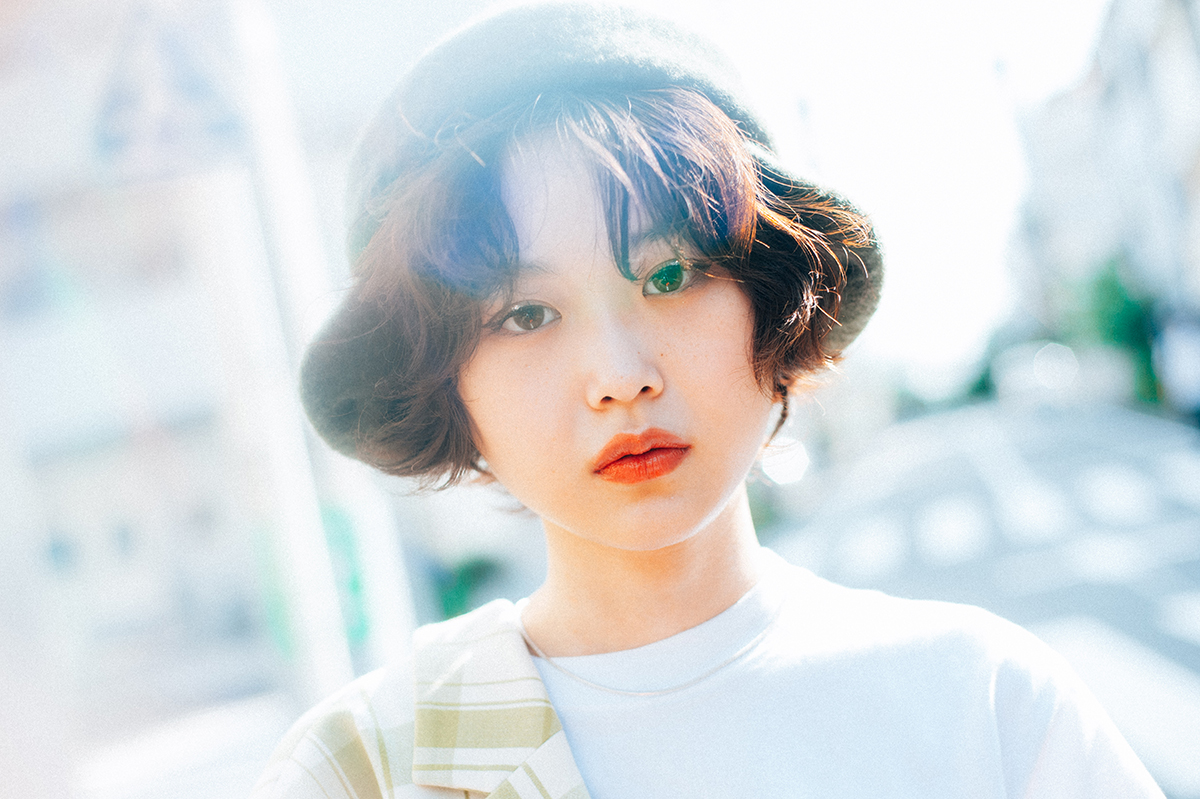
"Music was the only thing I felt a strong connection with. I felt like I was connected to the outside world through the cushion of music."
Rei: I probably first became aware of my singing career when I was in the third or fourth grade of elementary school. That's when I first invited my classmates to form a band and started singing myself. I started to enjoy singing covers of classic rock songs by The Beatles and The Who, as well as songs by Simple Plan and Avril Lavigne, which were popular at the time.
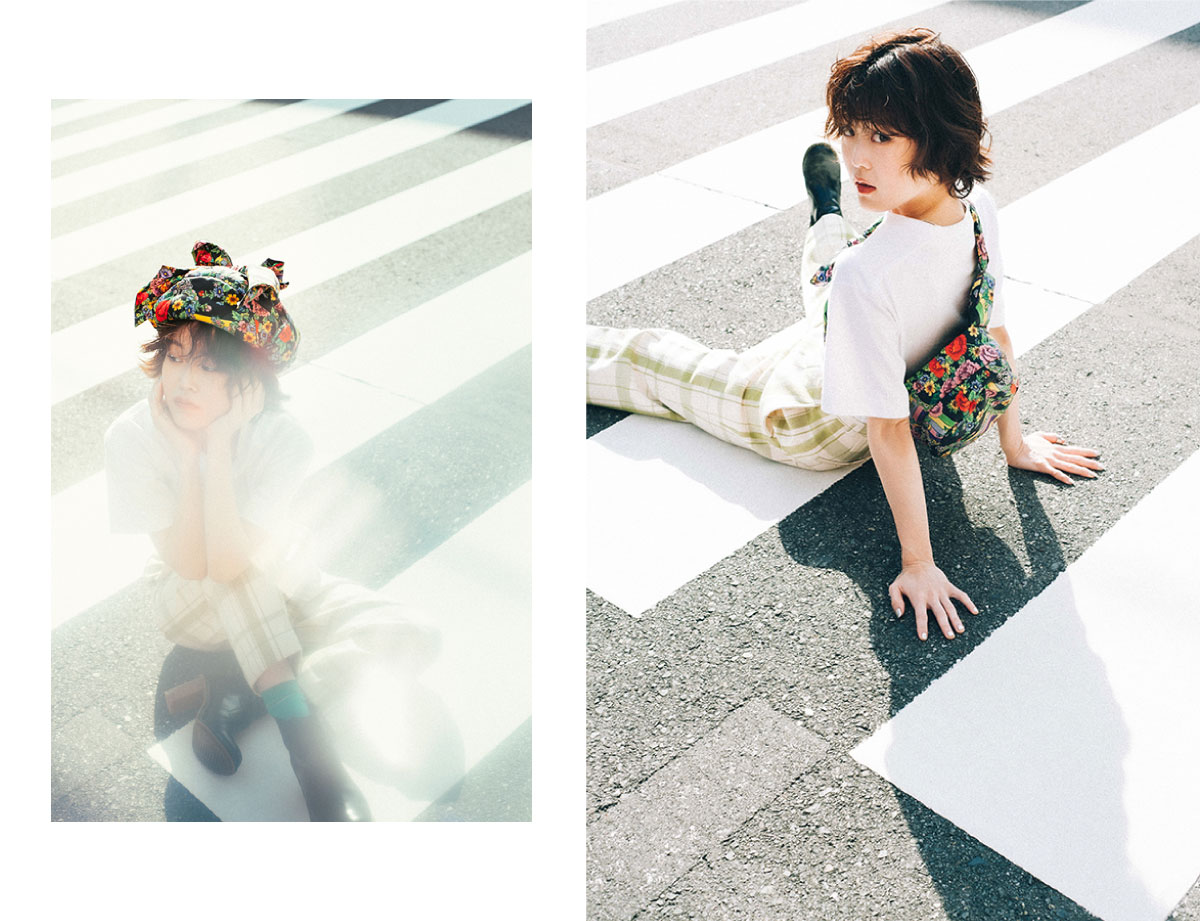
Rei: Around the same time I was in that band, I recorded my first song at home. One morning, a turtle I had at home escaped from its cage, and I was so sad that I made a song called "Brownie" named after the turtle, overdubbing it on a cassette MTR. That was the trigger for me to start writing songs for the band, and from that time on, the importance of singing and writing songs became greater for me.
Rei : That's right. I've been participating in competitions since I was young, but when I started a band at school, my feelings changed little by little. Contemporary music is different from classical music in that it involves a lot of improvisation, so I enjoyed creating sounds and playing them, and I also enjoyed simply singing and playing in an ensemble. So, rather than being a classical guitarist, I started to dream of making my own songs and debuting as an artist who sings while playing the guitar.
Rei: In the movie The Kids Are Alright, there's a scene where John Entwistle of The Who shoots down a platinum disc with a shotgun from the balcony of a castle filled with guitars and basses, and I thought, "I want to do that too!" So when I thought I had to become a star to do that, Pete Townshend also said, "To get rich from music, you have to write and sing your own songs" (laughs), and for those reasons, I had a dream of "having people all over the world humming my songs."
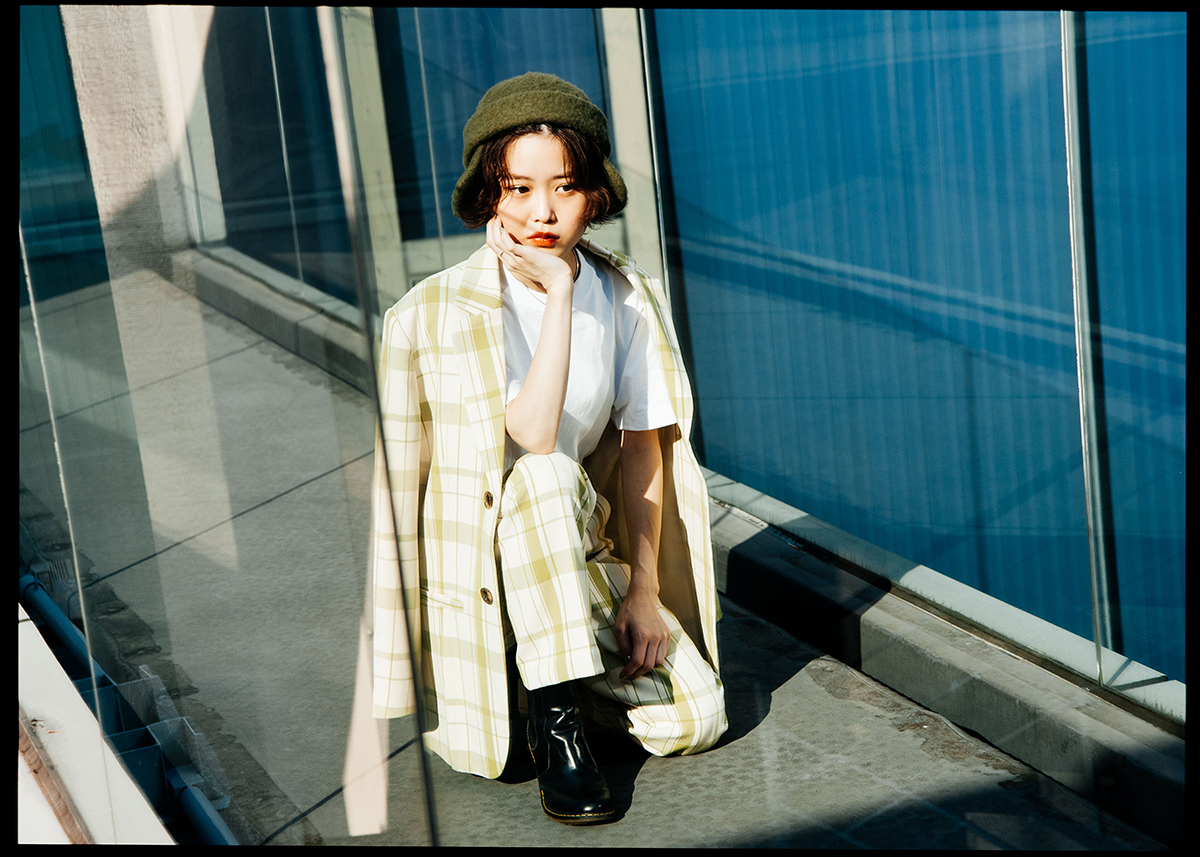
Rei : I think so. I've been aiming to be a musician since I was 4 years old, and I felt like I had little connection with the people around me. I felt like I wasn't completely connected to the outside world. But music was the only thing I had a strong connection with, and I felt like I was connected to the outside world through the cushion of music.
Rei: After all, the guitar is a tool, a kind of co-producer, and I hope that the main role will always be the song. Anything is fine if it gets people interested, and of course I'm happy if it's the guitar, but I'd be happiest if people said, "The song is good, the song is good." Well, what's important in the end is "the way of life." I love music, of course, but I've been greatly influenced by the way people live, whether it's Paul McCartney, Beck, St. Vincent, UA, or Ryosuke (Nagaoka), so I think that's the essence. It's fine if people start with the exterior, but ultimately I'd be happy if they could see the way I live.
"There are many ways to approach overseas markets, and I think they are all correct, but I like 'Lighthouse Underground'."
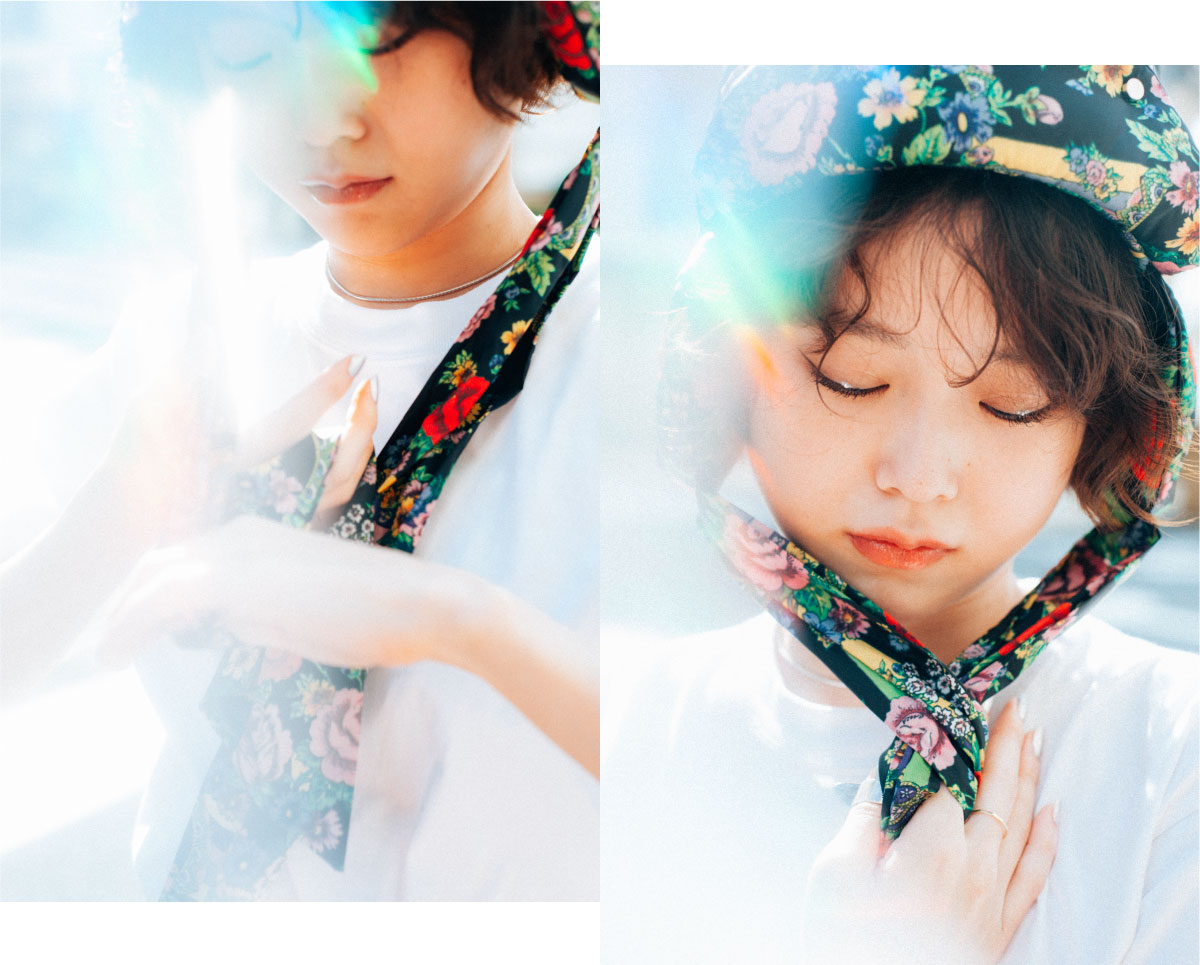
Rei : It's definitely Corona. America was in a difficult situation, so a lot of things stopped... but I think the timing of this release was appropriate, including that. I think that art can be a salvation when you're overwhelmed with your own things, but it always takes a lower priority than food, clothing, and shelter, and I think there are some music that you shouldn't force yourself to listen to when you're in a tight spot. I think that the work "REI" sounds even more beautiful when you have a lifeline to live and the mental space to think that flowers are beautiful. In that sense, although not everything has settled down yet, I think it was good to release it this year.
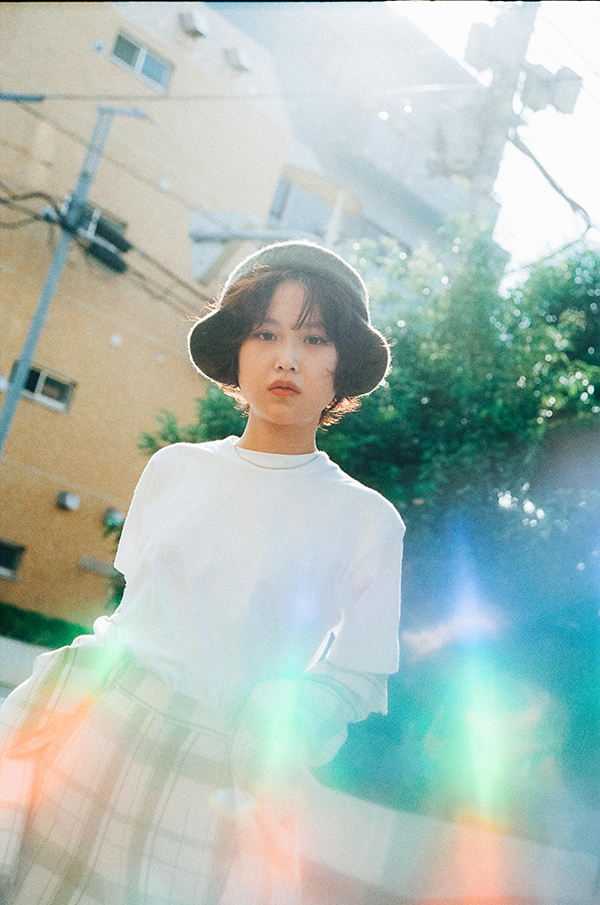
Rei: No, I heard from Verve after "REI" was released in Japan. So, I had the idea of creating an original work with Verve, but I thought it would be good to release what I already have with English lyrics as the opening of the story.
Rei: I was extremely happy. I lived in New York as a child, and Verve is a New York label, so I was happy about that, and when I decided to become a singer, I wanted to debut in America. However, when I was in high school, I realized the beauty of Japanese lyrics and wanted to sing in my native language, so I chose to debut in Japan, but debuting in America has been my dream since I was a child, so I was really happy.
Rei: English was easier. I usually write in English first, then think about what to translate into Japanese. Also, my Japanese and English personalities are different, so I can be more direct in English. I don't have to be shy, and I can reveal my harsh side. English is where my ego first developed, so writing in English is more like me, and writing in Japanese is more of a challenge.
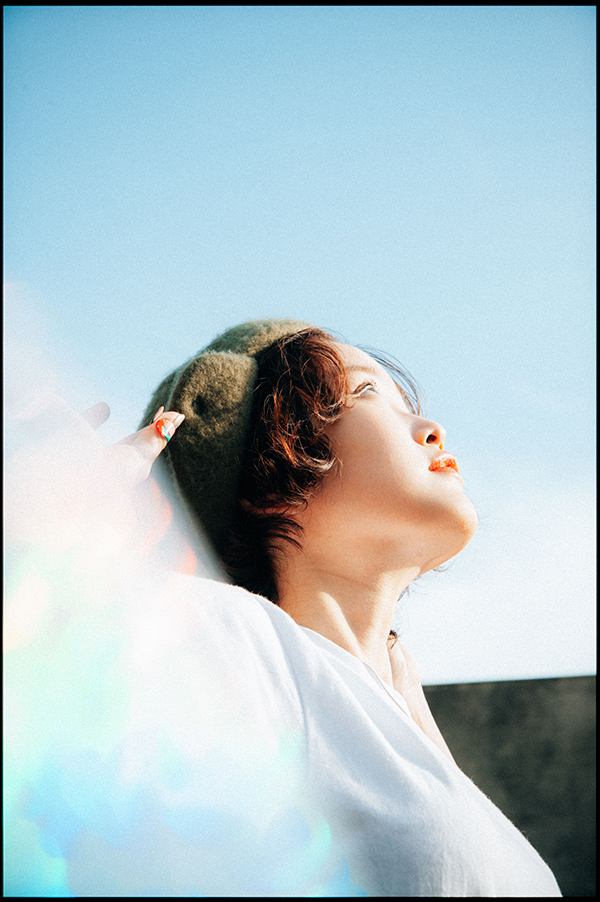
Rei: Right now, I simply want to be a big hit in Japan (laughs). If I become a musician who represents Japan, I think that overseas listeners will naturally become interested in me. It's like when Hoshino Gen works with Dua Lipa, or when city pop is reevaluated overseas. There are various ways to approach the overseas market, and I think they are all correct, but I think "Lighthouse Under the Light" is the best. I want to be loved by the people close to me, and then I want them to support me and say "Rei-chan, do your best over there." Of course, I'm very honored to be approached by Verve, so I want to continue my activities overseas at my own pace. However, I don't think that I want to focus on overseas to the point of interfering with my activities in Japan at this point in time, so I want to focus on my activities in Japan first.
"The people I love and the people who loved me helped me loosen up my rigid thinking, so 'QUILT' is also a way of expressing my gratitude to them."
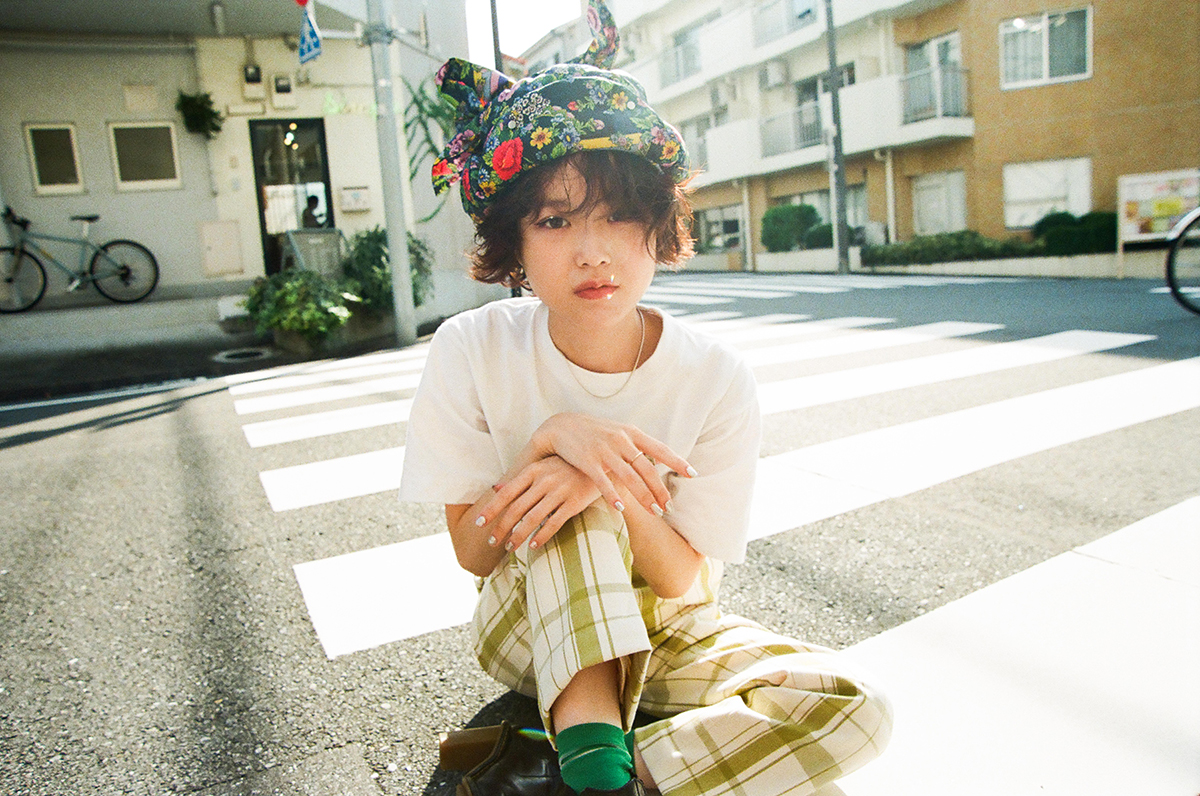
Rei: In my musical activities so far, I have had the opportunity to interact with various musicians and have jam sessions, and I wanted to leave something like that behind. So, this is a project that I couldn't have done at the time of my debut, and I think it's also a project that expresses the proof of my continued activities up to now. "QUILT" is a technique in which cotton is sandwiched between two pieces of cloth and sewed together with thread, but the image is that there are two artists, you and me, and there is cotton called music between them, and we sew it together to make one work.
Rei: "Symbiosis" is also an important keyword for this project. I think it's a theme that everyone is conscious of during the COVID-19 pandemic, but I wanted to portray it again. I've always been the type of person who thought, "If I have music, I don't need anything else," and I've always lived my life facing the guitar and music.
Rei: I didn't think being alone was uncool, rather I thought it was something to be proud of, like proof that I had fought with music. I thought it was uncool to hang out in groups, and I intended to live stoically with music alone. I felt that way for a while after I came to Tokyo, and even when I hung out with people, I always felt guilty, like "I have to turn this experience into a song," like I was doing something really bad if I didn't connect everything to music. But as I interacted with various people, there were people who helped me loosen up those thoughts.
Rei: She is someone who praises people honestly. It's like a flower that doesn't flaunt its beauty, but naturally makes the people around her feel kind, and she exists naturally there, which I think is really wonderful. When I spend time with her, I naturally get feedback on my music, and I realized that even without being weirdly conscious of music, my everyday life and connections with people can become music. The people I love and the people who love me have loosened my rigid thoughts, so this project is also a way of expressing my gratitude to them.
Rei: However, I think the reason I was able to think like that was because I had been living my life facing music with all my heart. I had a narrow perspective, but I always believed in music, and I was able to truly connect with the people I met along the way. Maybe some of the people who listen to this song feel lonely. When you're walking through a scramble intersection, there are a lot of people, but there are times when you feel, "How lonely?" Even if you feel that way, if you live your life with all your heart and sincerity, you will one day meet someone you can truly connect with. I hope this message will be one of those.
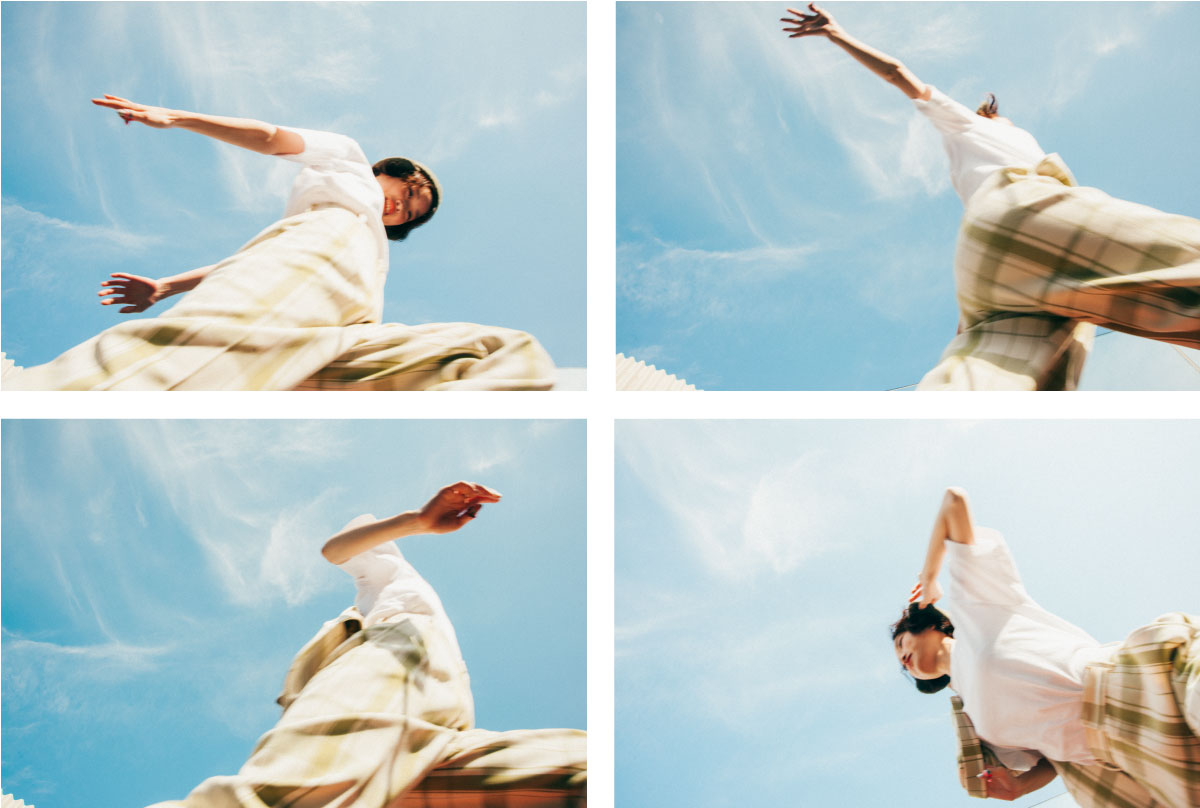
"Through my work up until now, I have created my own rules and my own style of work, but now I feel joy in the fact that I have finally created something that can break them."
It had been a while since I had been in a studio for Rei's own recording, and I felt very happy. This time, Hama Okamoto-kun, Shun Ishiwaka-kun, and the horn section were all friends I've worked with before, so it was moving to be able to get together with all of them and make music. Sakura-chan and I discussed what kind of song we wanted to make from the early stages, and we both wrote a lot of songs, so it was fun to try that kind of way of making music for the first time. The song itself was influenced by The Beatles, but since we both basically like the same things, we made it with the common awareness of "I want to make the best pop song."
Rei: When was the last time you laughed out loud? I think there are times when you don't laugh at all. But you shouldn't forget to laugh. It's a very basic thing, but I hope this song will remind people of something they tend to forget.
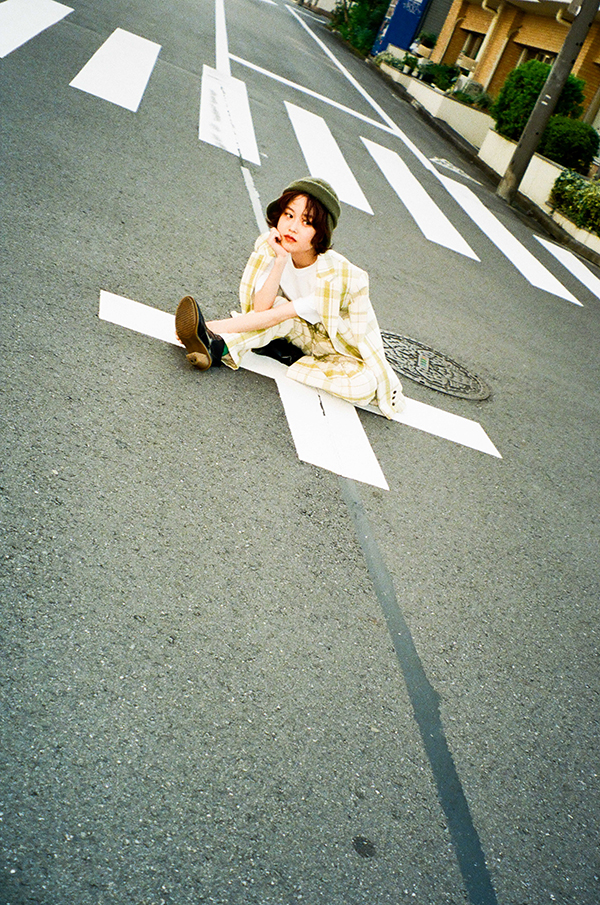
Rei: Since it's COLLABORATION between two artists, I tried to make it a two-tone visual. I thought it would be good to have a design that could be interpreted in many different ways, so I drew two girls running from a blue world into a pink world. It could look like the two girls are running off happily, or one of the girls is looking back worriedly, so I hope you'll use your imagination freely.
Rei: I've been working on it for a while now, and I've created my own rules and my own work, but I'm happy that I've finally created something to destroy. You can't destroy a sand castle without first building it, and now that I have something to destroy, I'm like, "Okay, let's destroy it!" That's what I'm doing now. In the past, when people would call me a "guitarist," I would say, "I also sing," and I would get angry in my mind (laughs), but now, because I've created a certain image that everyone has of me, I can break through it as much as I want. I'm excited about how I can get out of my comfort zone while borrowing the help of many people.
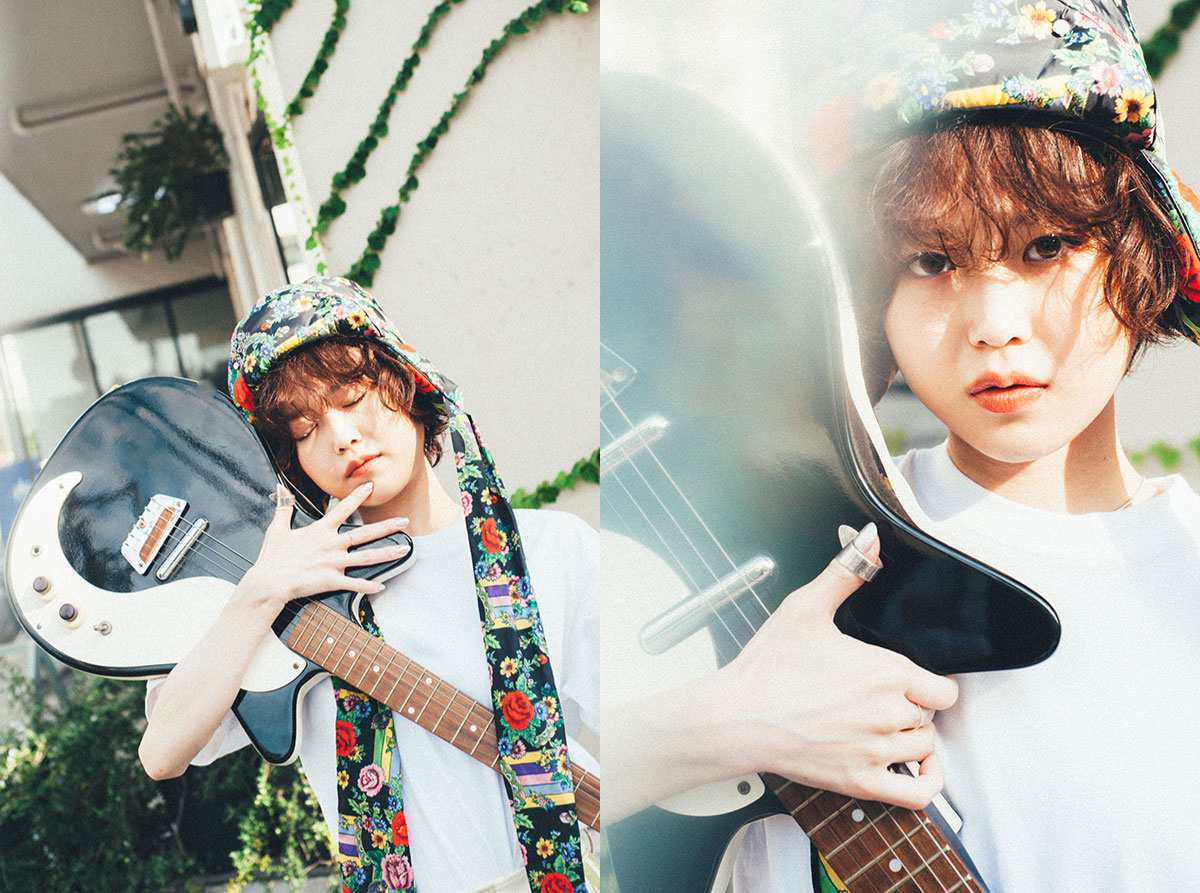
Rei: I've always thought this, but with COVID, something has become clearer to me: "tomorrow never comes." So, you have to live your life as if today is the last. I intend to do every work as if it were the end of my career, and by working under the assumption that tomorrow never comes, I think I can give my best.
"I want to wear clothes and hats as a way of expressing who I am, but without trying too hard."
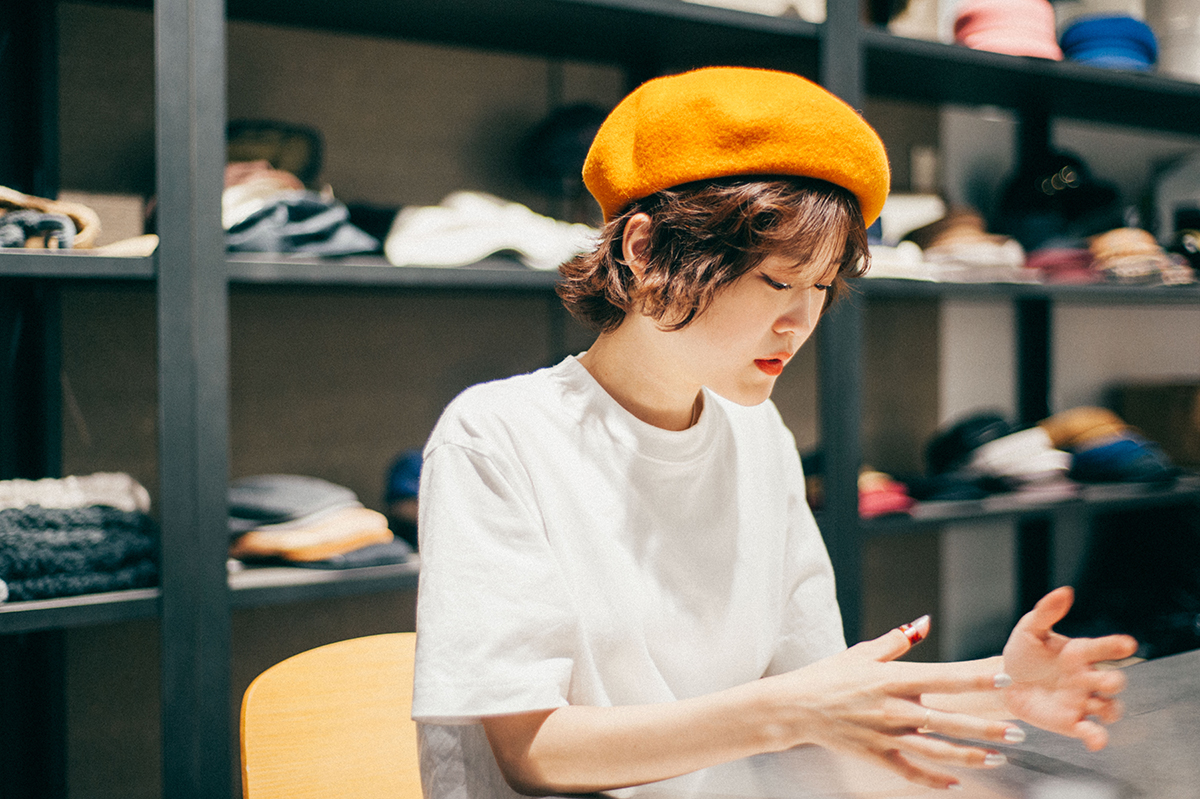
I started to love hats after I became a professional musician, and at first I collected a lot of cap with the "R" of "Rei" written on them, which was my first hat boom. After that, I collected a lot of berets, which was my second hat boom. Hats are...convenient when your hair style isn't going well (laughs), and even if your makeup is simple, a hat with some color can make your face look more vibrant, so I wear them like a frame for my face. Also, I really like how hats are linked to culture.
Rei: As I said earlier, I've always admired musicians who are particular about what they say, what they eat, what they wear, and I think wearing a hat is not just a fashion item. I think it's really cool that people today can wear what these people wore in this era, with an understanding of what they were wearing, so in that sense, I like how hats can be linked to various cultures.
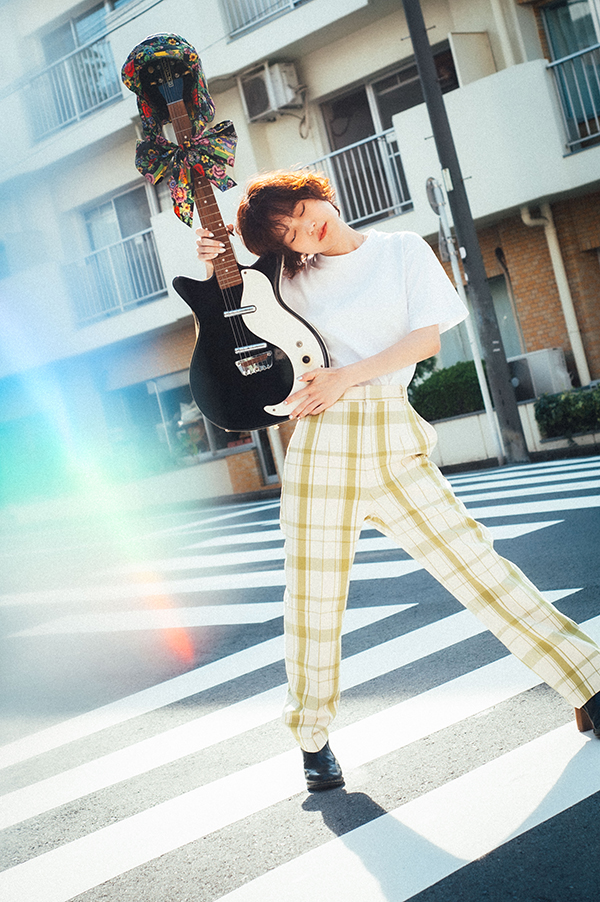
Rei: One thing I don't agree with is that the word "fashion" is sometimes used in the context of "trying to be something you're not" or "faking." I get annoyed when people say sarcastically, "You listen to this music for fashion, don't you?" I think the word "fashion" is a more heartfelt word. Of course, I think fashion is fine for the sake of looking cool, but to me it's like a mirror that reflects a person's soul, so I would like to wear clothes and hats in that way, as a way of expressing who I am, but without being too tense.
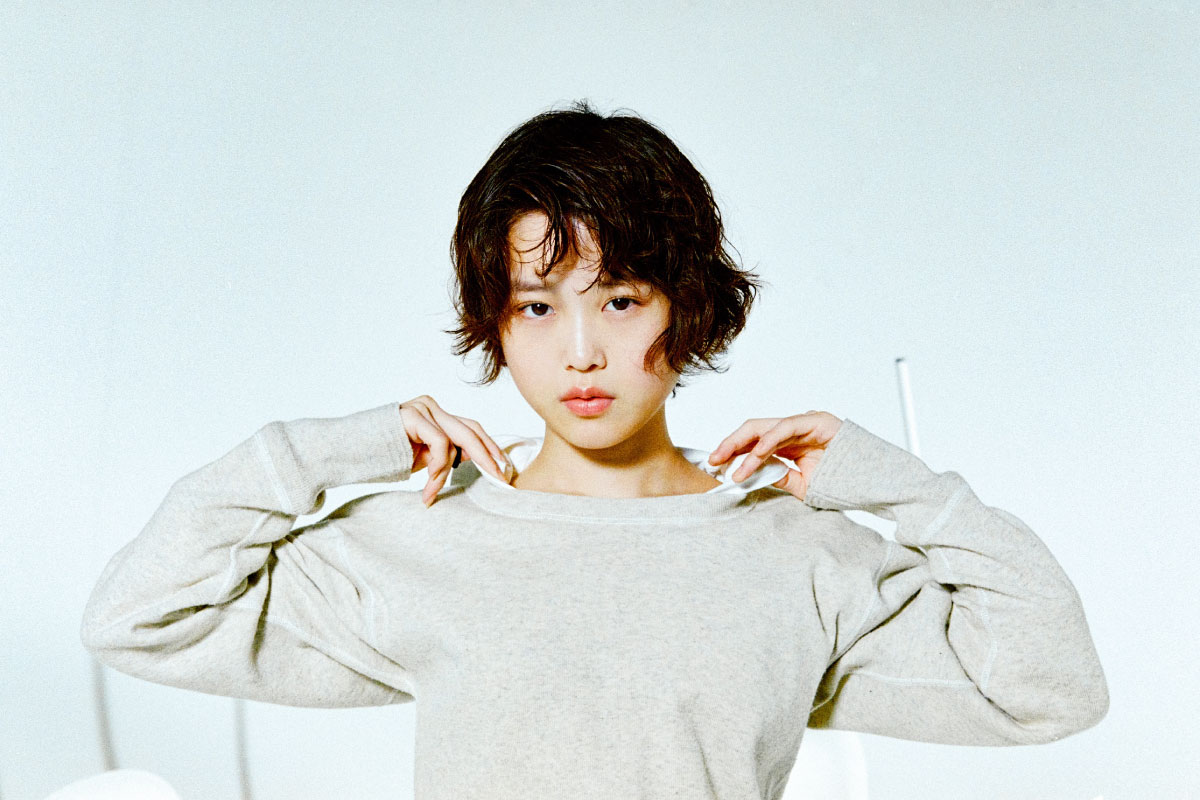
A singer-songwriter/guitarist with outstanding guitar playing and vocals. He spent his childhood in New York, started playing classical guitar at the age of four, discovered blues at the age of five, and began creating his own unique music that transcends genres. In February 2015, he released his first mini album, "BLU," co-produced by Ryosuke Nagaoka (Petrols). He has performed at numerous festivals both in Japan and abroad, including FUJI ROCK FESTIVAL, SUMMER SONIC, RISING SUN ROCK FESTIVAL, ARABAKI ROCK Fest, SXSW Music Festival, JAVA JAZZ Festival, Les Eurockeennes, and Heineken Jazzaldia. In the fall of 2017, he became the first Japanese musician to perform live at "TED NYC." November 25, 2020: Release of second album "HONEY" including "What Do You Want?", the COLLABORATION song for Mode Gakuen (Tokyo, Osaka, Nagoya), and "Lonely Dance Club", a collaboration with SOIL&"PIMP"SESSIONS. February 26, 2021: International Edition of first album "REI" released worldwide by US/Verve Forecast label. COLLABORATION project "QUILT" launched in October 2021. First release, single "Smile! with Fujiwara Sakura" featuring singer-songwriter Fujiwara Sakura, released digitally on October 15.
HP|TWITTER|Instagram|Facebook|YouTube
RELEASE
"Smile! with Fujiwara Sakura"Released on Friday, October 15, 2021
Reiny Records/Universal Music
https://lnk.to/Rei_Smile_SakuraPR
"comment"
Imagine a loved one smiling.
Just doing that will fill your body with a gentle, happy feeling.
The song is about a protagonist who lives alone and in sadness, but regains joy after meeting a certain person.
It is the story of Rei and Fujiwara Sakura, and also the story of you and someone else.
I hope everyone is smiling.
Rei
When I'm sad, when I'm happy
I casually contacted him to ask if we should meet.
We cook meals together, get angry and laugh together, and even if nothing is resolved, it makes us feel better.
I love the way you smile with all your heart. When I'm with you, I find myself clapping my hands and laughing too.
Thank you for such a wonderful song!
Fujiwara Sakura
EVENT SCHEDULE
Reiが2015年よりリスペクトするミュージシャンを招き、気まぐれに開催をしてきたReiny Friday。12回目の開催となる今回は初の東京・大阪での開催となり、フレンズに藤原さくらを迎えて開催。Reiny Friday -Rei & Friends- Vol.12
2021年10月15日(金)東京・ヒューリックホール東京(終了)
2021年10月22日(金)大阪・梅田CLUB QUATTRO
Act: Rei Friends: 藤原さくら
Tickets: 5,500円 https://eplus.jp/rei/
東京公演: HOT STUFF PROMOTION TEL 03-5720-9999(平日12:00/img/page_block/22/15:00)
大阪公演: サウンドクリエーター Mail https://www.sound-c.co.jp/contact/
